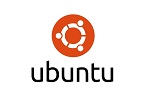How to install Ubuntu
Jump to navigation
Jump to search
Contents
What is Ubuntu
From Wikipedia:
Ubuntu is a Linux distribution based on Debian and composed mostly of free and open-source software. Ubuntu is officially released in three editions: Desktop, Server, and Core for Internet of things devices and robots. All the editions can run on the computer alone, or in a virtual machine.
Creating a Flash Drive
- Go to https://releases.ubuntu.com/ and find the version of Ubuntu that you want to use and download ubuntu-XX.XX.X-desktop-amd64.iso
- Next go to https://rufus.ie/ and download the latest version of rufus
- Put in your flash drive and open Rufus once it is installed
1. Make sure your flash drive is selected under device
2. Boot selection should be ISO image
3. Click select and naviagte to your Ubuntu ISO location
4. Partition should be MBR for Legacy, GPT for UEFI (check your BIOS to see which you are using)
5. Click start
Ubuntu Install
- Check to make sure bitlocker is disabled on the hard drive that you want to install Ubuntu on
- If you are doing a manual installation and dual boot (manually partitioning of root size and home size) skip to manual installtion
- Reboot your PC and keep hitting F12 as it is turning on to load into the boot options menu and select your flash drive
- When the flash drive loads you will see some options select the top option labeled "Ubuntu"
- Once it loads you will get the option to "try Ubuntu" or "install Ubuntu" select install
- Select your language
- Choose normal installation, make sure download updates while Ubuntu is installing and Install 3rd party are both checked
- Choose your install type reinstall, alongside(dual boot), or format and install
Automatic installation
- After choosing your installation type click continue
- Select the hard drive you want to install Ubuntu on (if your drive does not show up in the list that you want to use then see manual installation)
- Move the slider between the drives to change the size of the partitions to increase or decrease the ubuntu size
- When you have the size you want click install and choose the correct time zone
- Ubuntu will install and download some basic drivers and you are done
Manual Installation
Dual boot only
- In windows open disk management
- Select the partition with your other OS right click and click shrink volume
- Enter the amount of space that you want to have available for Ubuntu and click shrink
- You will see the space available with a black line over it and it will show as unallocated
- Go ahead and reboot to your Ubuntu flash drive until you get to the "Installation type" screen
- Click the "something else" option and continue
- Find the the correct hard drive that you just partitioned and there should be a section labeled Free Space the size should be the same as what you previously partitioned
- With free space highlighted click the plus sign
- For partition size it should be - 20GB minimum, Type of partition should be - Logical, Location - Beginning of this space, use as - EXT4 journaling file system, Mount point type - / then click ok
- With free space highlighted click the plus sign again
- Size should be - double your systems RAM, Type of partition - Logical, Location - Beginning of this space, Use as - click area and select swap area, then click ok
- With free space highlighted click the plus sign again
- Size should be - all of the remaining, type of partition - Logical, Location - Beginning of this space, Use as - Ext4 journaling file system, Mount point type - /home, then click ok
- Then click install now and select your time zone and the installation will go through and you are done
Non Dual Boot
On the Installation Type screen select the option that says "Something else" and continue
- You should see just one line if you have no other data installed on the hard drive. if you want to wipe it then select each line you want to remove and click the - sign to delete it
- once you have a single line click new partition table
- You will get a warning saying you are about to wipe a whole drive click continue to partition the drive and delete all data
- Select free space and click +
- For size it should be - 1GB (1024MB), Type for new partition Primary, Location - Beginning of this space, Use as - Ext4 journaling file system, Mount point - /boot then click ok
- Select free space and click +
- For size it should be - 8GB minimum, Type for new partition Logical, Location - Beginning of this space, Use as - Ext4 journaling file system, Mount point - /var then click ok
- Select free space and click +
- For partition size it should be - 20GB minimum, Type of partition should be - Logical, Location - Beginning of this space, use as - EXT4 journaling file system, Mount point type - / then click ok
- Select free space and click +
- Size should be - double your systems RAM, Type of partition - Logical, Location - Beginning of this space, Use as - click area and select swap area, then click ok
- Select free space and click +
- Size should be - all of the remaining, type of partition - Logical, Location - Beginning of this space, Use as - Ext4 journaling file system, Mount point type - /home, then click ok
